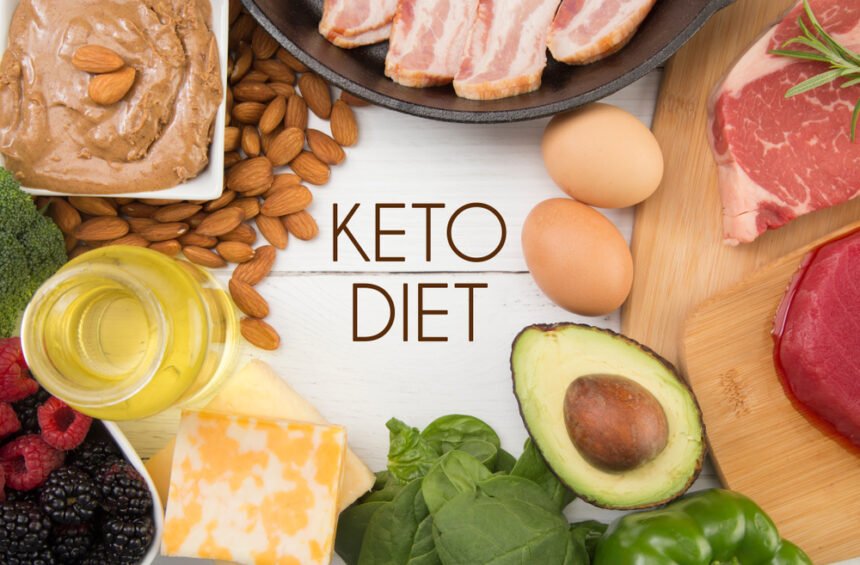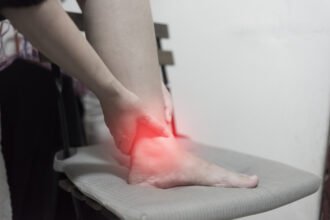The ketogenic diet, more commonly known as keto, is all the rage lately. There’s no denying that it gets results fast. Similar to the high-fat, low-carb diet, the ketogenic diet delivers fast and effective results. It does have many benefits such as benefits in potentially regressing cancers (1), Alzheimer’s disease (2) and epileptic seizures (3). But what are the drawbacks? Is it going to be right for you? In this article, we share further why the ketogenic diet may not be for you.
- What is a Ketogenic Diet?
- 5 Health Risks Associated With a Ketogenic Diet
- 1. You Might Lose Weight, But You Might Gain it Back Just as Quick
- 2. You Can Lose Both Fat and Muscle Mass
- 3. Complications with Blood Sugar Levels and Diabetics
- 4. Constipation and Other Bowel Problems
- 5. High Fat Intake Can Increase Heart Disease Risk
- Should You Go on a Ketogenic Diet?
What is a Ketogenic Diet?
The ketogenic diet is similar to the high-fat, low-carb diet which was popularised 10-15 years ago. Similar to other lower-carbohydrate diets, keto suggests you increase the nutrition you gain from healthy fats. The difference? Low carb is usually defined as less than 100-120g per day, keto demands you ingest less than 50g per day. The purpose of the ketogenic diet is to eat a small enough amount of carbohydrates to send your body into ketosis. The brain will use energy from two stores, glucose or ketones. It’s preferred fuel source is glucose every time. Glucose is the chemical compound of our carbohydrates when they are broken down. Without carbohydrates, the body is bound to switch into ketosis when all our glucose is used up. In a state of ketosis, the fat-burning process accelerates, as it’s now the main source of fuel for the body. Ketones are created when fatty acids are transported to the liver. This is the process that all ketogenic dieters strive to maintain.
The Rules of the Ketogenic Diet
In order to reach this state of ketosis, carbohydrate intake must be limited. You must strictly only eat 20-50g of carbohydrates per day for this level of fat-burning to occur. Their macronutrient content must abide by these rules:
- 75% caloric Intake from fats
- 20% caloric intake from proteins
- 5% (less than 50g) caloric intake from carbohydrates
Fats are high in calorie content, so it won’t be difficult to achieve this.
5 Health Risks Associated With a Ketogenic Diet
With any fitness or health trend, there are often risks and drawbacks. Here are the top five health risks associated with a ketogenic diet.
1. You Might Lose Weight, But You Might Gain it Back Just as Quick
Due to the restrictive nature of the ketogenic diet, it has a high drop-out rate. With any restrictive or fad diets, constituents often get quick results but regress quickly too. A diet similar to the keto diet with the general population is tough on mindset and the ability to sustain it. Without a longer-term plan such as a post-keto lifestyle plan, dieters will gain back their newly lost weight. Keto definitely has a time and place, but it cannot be used as a quick fix to one’s weight problems.
2. You Can Lose Both Fat and Muscle Mass
We burn energy to be utilized in the body in the following order: Carbohydrates, fats, and then protein. Proteins are generally only ever burned if you’re severely underweight, completing an ultramarathon, or undertaking a ketogenic diet with incorrect nutrition. If you’re serious about undertaking a ketogenic diet, you must be strict with your fat content. Ingesting enough fat is integral to ensure you do not break down muscle mass. Your muscle is important for your metabolism, which means that incorrect nutrition while undertaking the ketogenic diet could have the opposite effect on your goals.
3. Complications with Blood Sugar Levels and Diabetics
There are a few groups of people who should not try keto, and diabetics are one of them. With any lifestyle change, it’s recommended to seek advice from a general practitioner. According to studies, following a ketogenic diet may lower your blood sugar levels and insulin levels (5), which can be dangerous for diabetics. In type 1 diabetics, it can also increase the chances of developing diabetic ketoacidosis which is an increase in blood acidity. As such, any diabetic desiring to undertake a ketogenic diet must work closely with their doctor.
4. Constipation and Other Bowel Problems
You’re not alone if you’ve tried keto and you find that you’re either running to the bathroom too often or not able to go at all. Often, when one cuts back on carbs, their fiber intake is affected. Fiber is responsible for a healthy bowel which may mean either too much or not enough waste is leaving your body.
5. High Fat Intake Can Increase Heart Disease Risk
To diet effectively, you must gain 70% of your calories from fats. That’s a lot of fat! Many often increase their meat content. However, meat contains a lot of saturated fats. If you’re not meticulous in ensuring you source your fats from the healthy monounsaturated and polyunsaturated fats, you could run into trouble further down the line. Saturated fats will increase your LDL which is the bad cholesterol. This will harden your arteries which puts you at a higher risk of cardiovascular-related diseases.
Should You Go on a Ketogenic Diet?
If you’re underweight, pregnant, breastfeeding, have diabetes or liver problems, definitely not! With any major lifestyle change, it’s best to consult your general practitioner or certified nutritionist first. From a physical therapist’s point of view? There are a time and place for everything, including the ketogenic diet. If you can source good fats, get in plenty of nutrients and be strict with your macros, keto might be right for you. If not, you might need some further guidance. Interested to know more? At Dumbbell Reviews, I share more expertise in the health and fitness realm to save you time and money in your fat loss journey.







